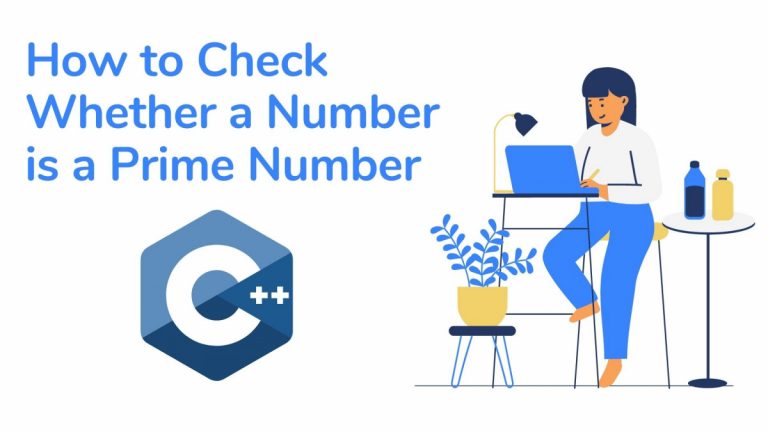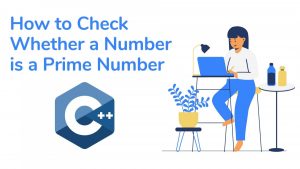
What is a prime number?
A prime number is any number greater than one, which is dividable only by itself or by one. (e. g. 7)
1 and 0 aren’t prime numbers because a prime number must be dividable by two different numbers and because you can’t divide by 0.
Here are the first ten prime numbers:
2; 3; 5; 7; 11; 13; 17; 19; 23; 29 . . . (list of prime numbers up to 10,000)
Keep in mind that 2 is the only even prime number. If a different number is even, hence dividable by two, it is never a prime number.
At some point, it gets really hard to figure out whether a number is a prime number on your own. Therefore, keep reading to find out how to check whether a number is a prime number using a simple C++ code!
Check for Given Numbers
Luckily, checking if a given number is a prime number is very easy and doesn’t require complicated explanations.
Here’s the code for a standalone console application:
#include <iostream>
using namespace std;
int main() {
unsigned long long n, i;
bool prime = true;
cout << "Please provide a positive integer: ";
cin >> n;
// If the number is smaller or equal to one, it is no prime number
if (n <= 1) {
prime = false;
}
else {
// Check if the given number is a prime number
for (i = 2; i <= n/2; i++) { // We divide the given number by 2 to reduce processing time
if (n % i == 0) { // If n is dividable by a number other than 1 or n it is not a prime number
prime = false;
break;
}
}
}
if (prime)
cout << n << " is a prime number";
else
cout << n << " is not a prime number -> Dividable by " << i;
return 0;
}
If you plan to use this code in your project, you should make sure that the program can handle invalid user input. For example, if the user enters a negative number or no number at all.
As you probably know, you can handle invalid user inputs using a try-catch statement around the first if-else statement.
If you just want a simple function without console input and output, you can use this bit of code:
bool is_prime(unsigned long long n) {
if (n <= 1) {
return false;
}
else {
for (unsigned long long i = 2; i <= n/2; i++) {
if (n % i == 0) {
return false;
}
}
return true;
}
}
When using this snippet of code in your project, be aware that checking for larger numbers takes a while and can “freeze” your program if you don’t offload this task to another thread.
Automatically Search for Prime Numbers
Of course, there also is a very simple code snippet to automatically search for prime numbers and store them in a vector.
Here you have a function you can include in your projects:
#include <vector>
std::vector<unsigned long long> search(unsigned long long max = 1000) {
std::vector<unsigned long long> primes;
for (int x = 2; x <= limit; x++) { // Check all numbers above one and under or equal to the maximum
bool prime = true;
for (int i = 2; i <= x/2; i++) { // Check if x is a prime number
if (x % i == 0) {
prime = false;
break;
}
}
if (prime) { // If a prime number has been found, add it to the vector
primes.push_back(x);
}
}
//for (auto e : primes) // print the results
// cout << e << "\n";
return primes;
}
How it works:
We specify a maximum number (default: 1,000), iterate from 2 to the maximum, check each number if it is a prime number, and if it is, we add the number to a primes vector. Finally, we can return the vector and print all the prime numbers that were found.
Thanks for reading!

